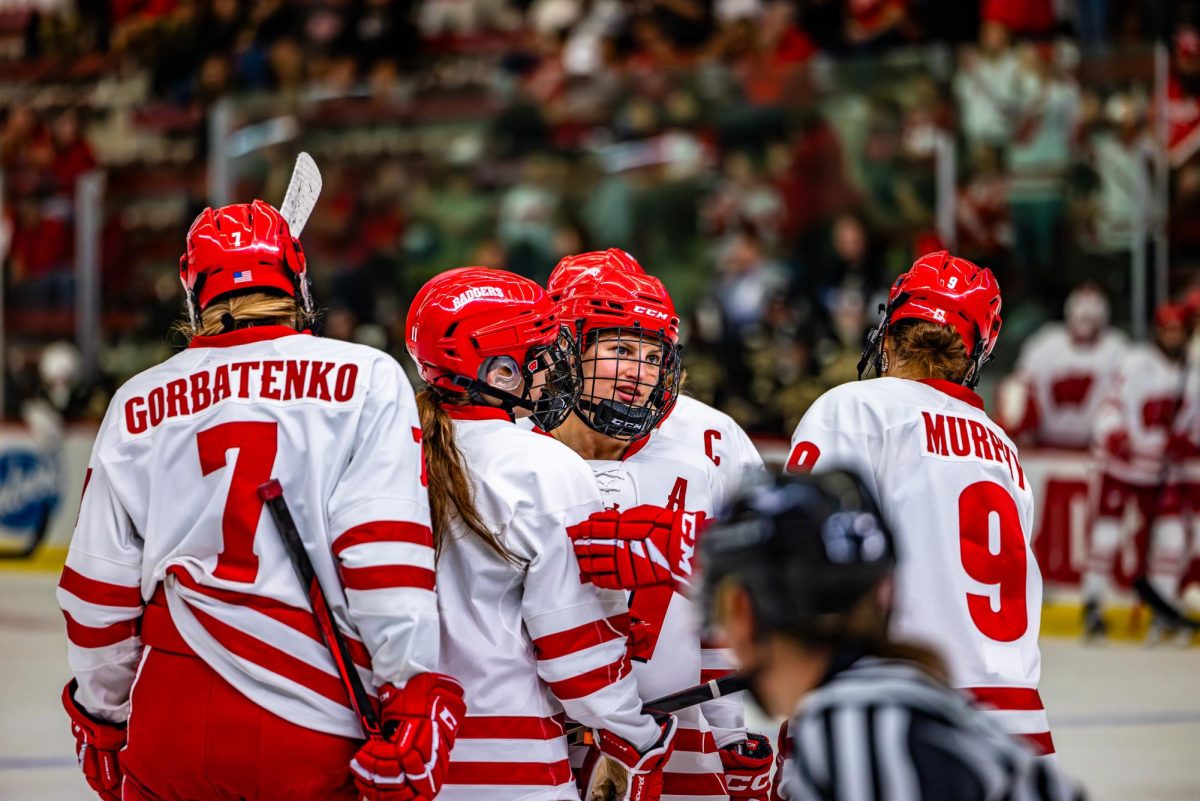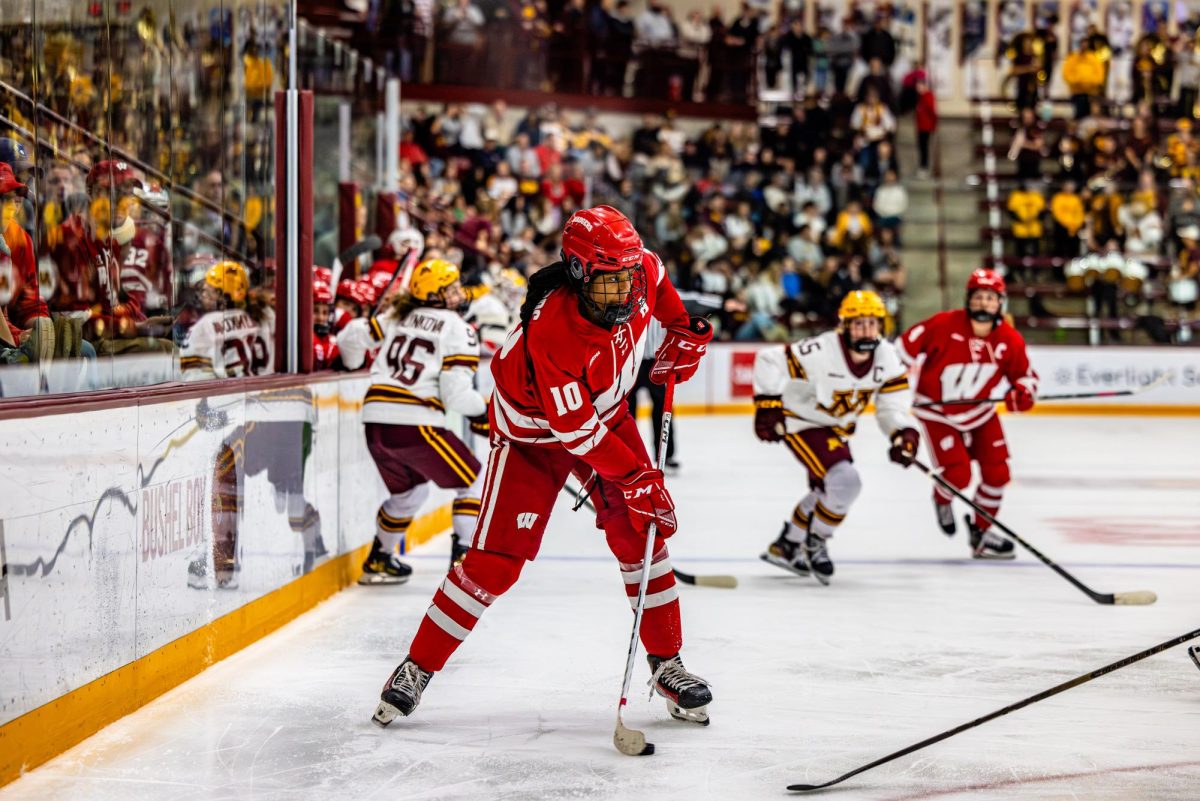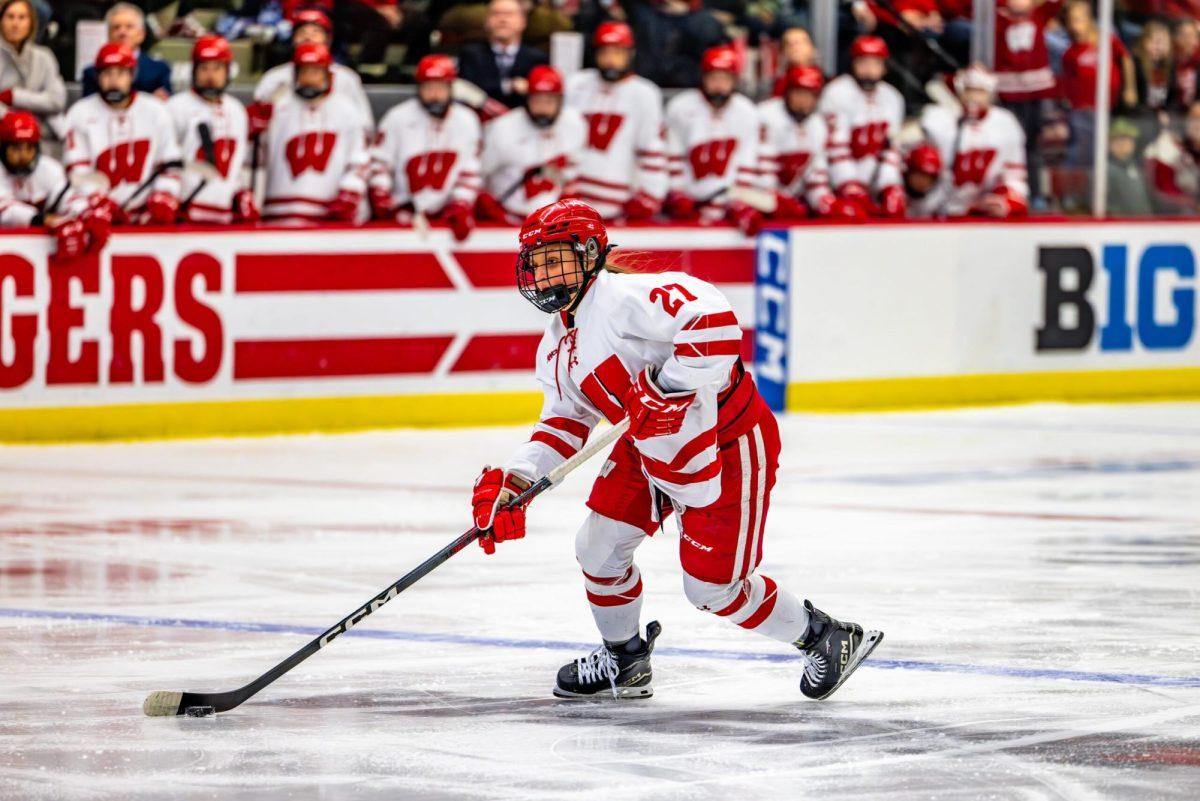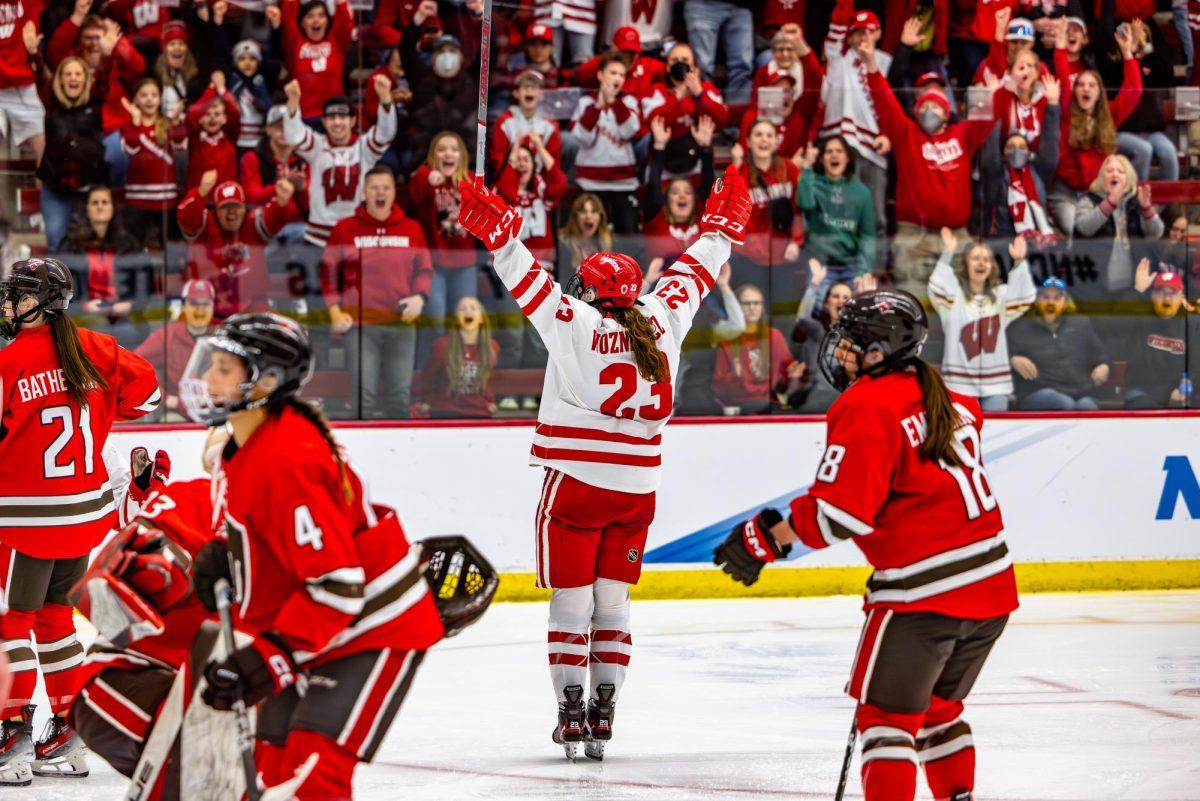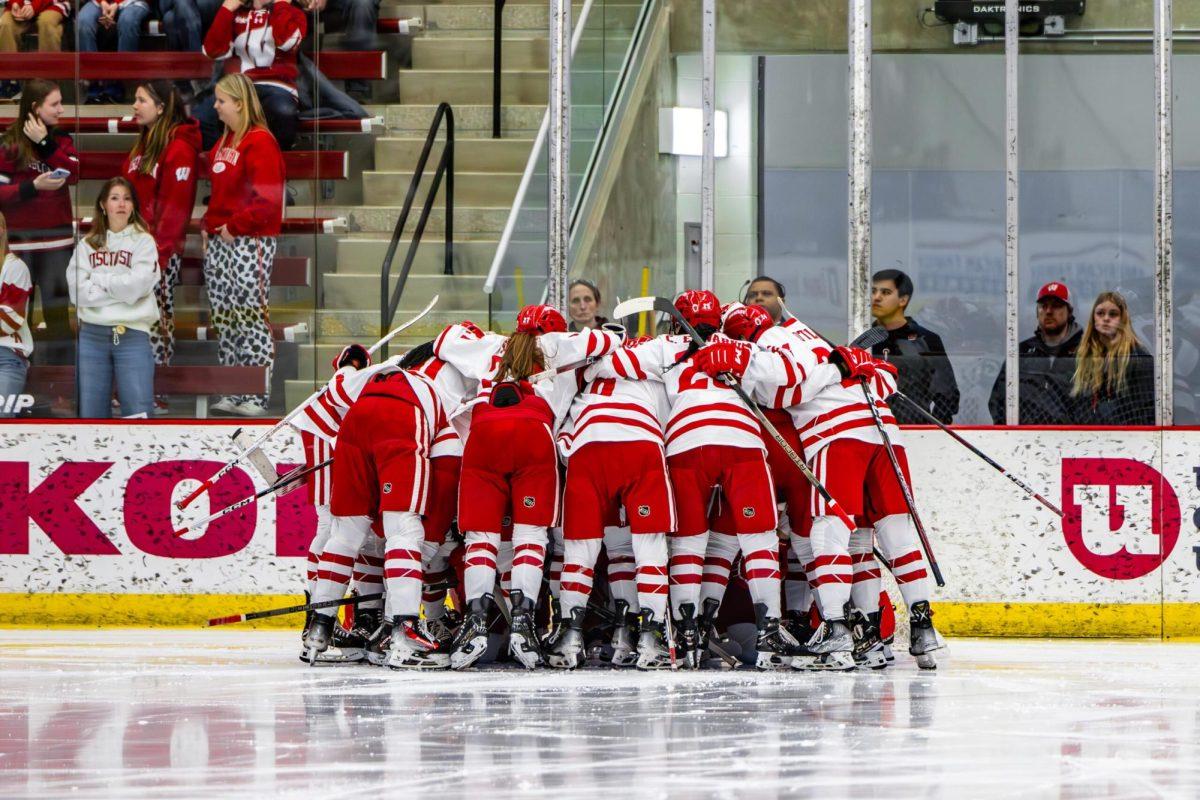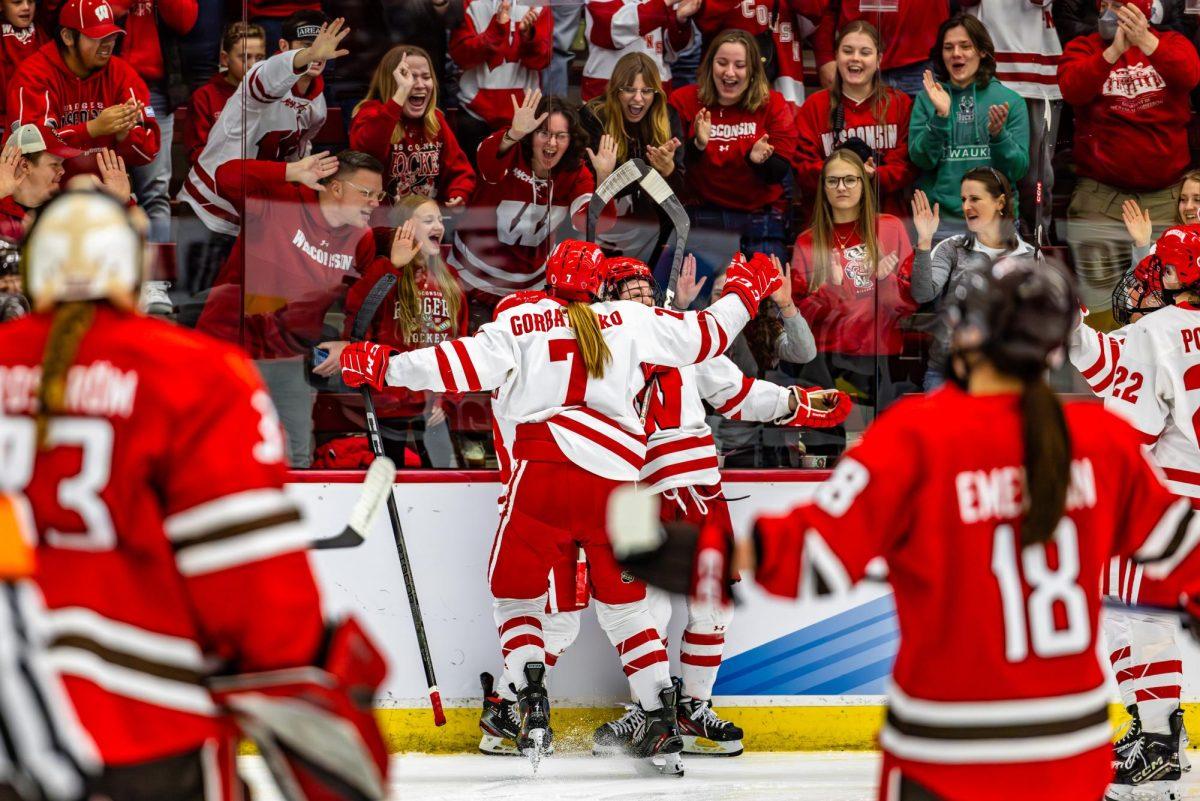
It’s easy to look past the defense when the Wisconsin women’s hockey team averages almost a goal and a half more than any other team in the WCHA. However with every passing game, Wisconsin’s young defensive core garners more respect, solidifying the zone where the team spends the least amount of time.
Through 10 games this season the Badgers boast the second best goals-against average (1.8 per game) in the conference. The Badgers’ sole senior defenseman, Geena Prough, understands that the defense’s success stems not only from the veteran leadership, but also from the group’s effort entirely.
“I’ve just made it a point to keep their confidence up, give them any insight I’ve learned from the coaches or my fellow teammates as well, and just stayed positive with them because we’re a group back there together, and I’m only as good as my partner next to me,” Prough said.
Four out of the five blue-liners next to Prough returned from last season. The extra year of experience together has galvanized the group, which breeds positive results on the ice.
“We have the same defensive core, except for one new freshman, so I think we’re all getting used to each other. We have really good communication skills with each other because we are all really close,” sophomore Saige Pacholok said.
The gelling process amongst the young defensemen began last season when Pacholok and sophomore Stefani McKeough joined the Badgers.
This year McKeough arrived with a better preparedness for not only the stiff competition the Badgers can face year in and year out, but also how to cope with life as a student athlete.
Already a talented player, as she represented Canada on the U-18 National Team, during the offseason and before each practice McKeough works on her speed to keep pace with the frenetic WCHA level.
“I’m always going to try and work on my skating, especially as a defenseman you have got to work on being fast forwards and backwards. It kind of takes double the time to be just as fast,” McKeough said.
Pacholok, the other sophomore defenseman and McKeough’s teammate on Canada’s National Team, believes she has improved her game as well.
Already with an ability to make quick decisions on the ice and a keen eye for the timely outlet pass, the additional year of experience makes a big difference in Pacholok’s eyes.
“It’s confidence. I feel a lot more comfortable this year, and I think you could talk to any other sophomore on the team or even other players and they would say the same thing. We’re all getting used to each other and that’s good,” Pacholok said.
One of the players Pacholok must begin to ‘get used to,’ Wisconsin native and freshman Kelly Jaminski is learning the speed of the game herself this year.
Equipped with incredible reach and a lethal shot, Jaminski adds even more strength to the Badger blue line.
“She brings size, she’s got a great shot and passes the puck hard. Confidence will come with experience, and I think that she will become a really good player if she can play with confidence and listen to what the coaches have to say,” Pacholok said.
Geena Prough understands the difficulty that freshmen face while adjusting to the big stage of Division-I hockey, a pressure likely amplified by the success of the Badgers this season. But Prough has already seen the freshman positively contribute thus far.
“It’s always tough freshman year to get thrown into the fire a little bit. But I think [last] weekend at Minnesota she really stepped her game up and proved that she belongs at this level. She did really well,” Prough said.
Throughout the beginning of the season head coach Mark Johnson has vehemently preached the value of consistency in his team’s effort, either during practice or games.
The way the defense can reach the level of consistency Johnson wants is through achieving the goals that the group set at the beginning of the season.
According to McKeough, the defense wants to lower the amount of time in the defensive zone and make better breakout passes at the most opportune times.
Although, McKeough understands that the games where the group fails to reach those goals are just as important as when they meet them.
“When we don’t achieve the goals, whether it’s during one period when we have more time in the defensive zone, we can look at the things we did wrong and correct them in the next period or the next game,” McKeough said.








